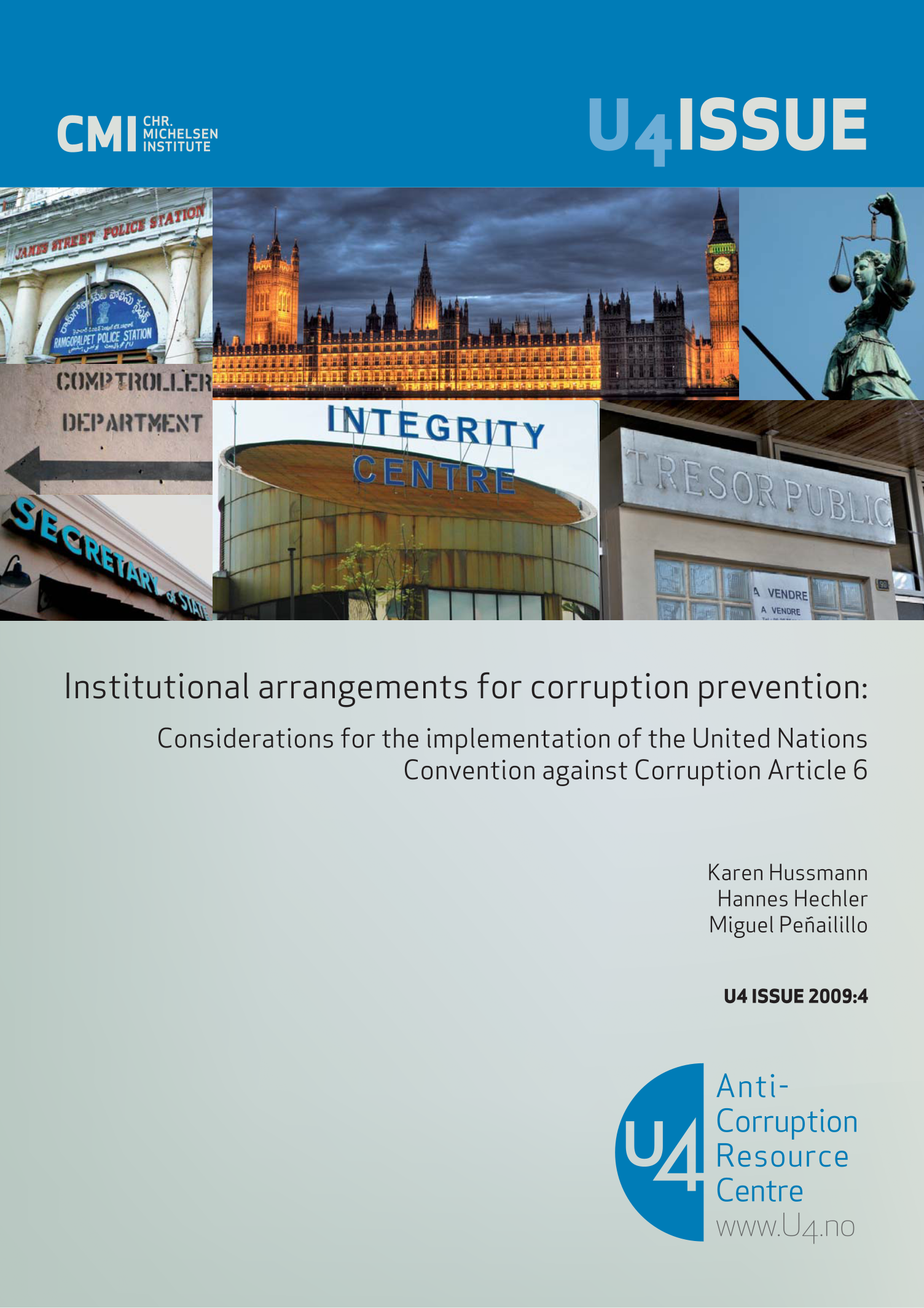U4 Issue
Institutional arrangements for corruption prevention: Considerations for the implementation of the United Nations convention against corruption article 6
What kind of institutions does a state need to have in place to effectively prevent corruption? What does it mean, when article 6 of the UN Convention against Corruption (UNCAC) requires states to ensure the existence of a body or bodies to prevent corruption? It has been argued that this calls for specialised preventive anti‑corruption agencies, preferably one. While this might be one of several options, this U4 Issue Paper argues differently. As the UNCAC requires such bodies to be in place not only for coordinating and supervising preventive anti‑corruption policies, but also for their implementation, it is unavoidable that this implies the involvement of a variety of institutions. By unravelling the functions prescribed in article 6 from a public policy perspective, this paper also sets into perspective what is meant by granting the body or bodies the "necessary independence" to enable them to carry out its or their functions effectively and without undue influence. Obviously, this "necessary independence" will look differently depending on whether one has to coordinate, supervise, or implement an anti‑corruption policy, not to mention increasing and disseminating knowledge on corruption prevention, as also stipulated in article 6.

Cite this publication
Hussmann, K.; Hechler, H.; Peñailillo, M.; (2009) Institutional arrangements for corruption prevention: Considerations for the implementation of the United Nations convention against corruption article 6. Bergen: U4 Anti-Corruption Resource Centre, Chr. Michelsen Institute (U4 Issue 2009:4)
Disclaimer
All views in this text are the author(s)’, and may differ from the U4 partner agencies’ policies.
This work is licenced under a Creative Commons Attribution-NonCommercial-NoDerivatives 4.0 International licence (CC BY-NC-ND 4.0)